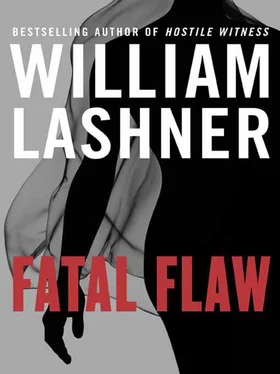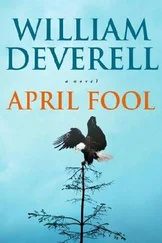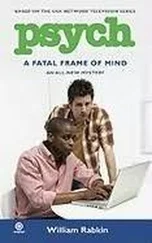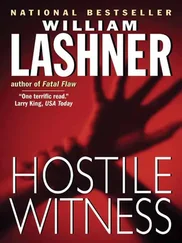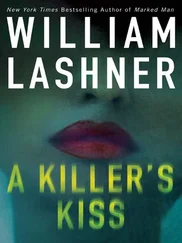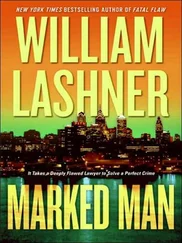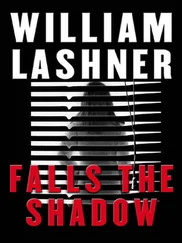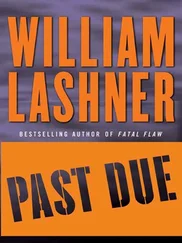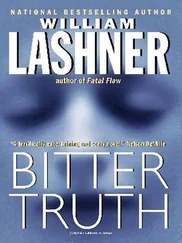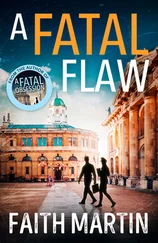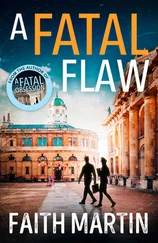“You want to cross-examine?”
“Yes, ma’am.”
“You have questions for this witness?”
“Just a few.”
“Are you sure? Don’t you think it was bad enough already? Are you certain that it might not make more sense just to leave him be, hope the jury forgets what he said, and let the prosecution rest its case?”
“Just a few questions, Your Honor.”
“Well, then, have at it, Mr. Carl. It’s time to recess for the afternoon. So tomorrow, first thing, you’ll get your chance. And do not say I didn’t warn you.”
ONCE BEFOREin my career, during its early, naïve stage, I had attempted to break a man on cross-examination. Carefully I prepared, laying out all my traps, hoping for the devastating blow. He was a city councilman, skilled in the use of language but hot of temper, and I believed I could make him blow. I was wrong. Oh, I brought forth flashes of anger and exposed to the jury with lovely clarity the brittle inconsistencies in his story, but that was all. He had murdered a man with his bare hands, proven later by a piece of physical evidence held closely by his wife, but on the stand I got none of that, and I felt my client’s guilty verdict deep in my gut.
It taught me a fine lesson. Cross-examination is a lovely tool for highlighting inconsistencies and evident falsehoods, for painting a witness as a hapless prevaricator or even an outright liar, cross-examination can be the death of a thousand cuts for the credibility of that witness or an opponent’s entire case, but it is not the place for the single crushing blow. There are too many formalities involved, too many safeguards. Compare the polite confines of a courtroom with a police interrogation room in the dank recesses of a precinct house, a place of intimidation, of psychological manipulation, of violence imagined or real. The interrogation room is the place to break a suspect. But Lawrence Cutlip would never submit to the interrogation room and, I suspected, in its confines, furry with sweat and fear, he would be comfortably at home, able to withstand all manner of the interrogator’s tricks. He was not the type to be badgered into confession. So there would be no interrogation here. I would have to make do with cross-examination, which, despite its fearsome reputation, is a gentler dance.
So how was I to proceed? Advice was more then plentiful.
Phil Skink: “Go right at him. Fast and furious. Get him on the ropes and don’t let up.”
“It’s not a boxing match, Phil.”
“No? You’re going in there to put him away, right?. It’s no time for subtle mercy. You need be to Jack Dempsey – hook, hook, hook, and then step into the right what breaks his jaw.”
“Have you found anything yet?”
“Don’t you think I’d have told you?”
“I need it.”
“I knows you need it, mate, and I’ll be getting it, too. But you remember what I says. Jack Dempsey. Hook, hook, hook, and then the right to the jaw. Drop him like a sack of potatoes, you will.”
Beth Derringer: “Be gentle, subtle. He can handle anger, he’s used to it, it’s all he’s ever known, but the soft emotions will confuse him.”
“Skink thinks I should be Jack Dempsey in there.”
“Guys like Skink only know one way. But there is another. Dance around the truth so he doesn’t realize what you’re getting at until it is too late. A little bit here, a little bit there. He’ll be expecting a masculine rush up the middle, a straight through line like a fullback off tackle. You should take a more circular tack.”
“Virginia Woolf as opposed to Ernest Hemingway.”
“Yes, yes. Exactly.”
“It sounds nice, but I didn’t know that the Bloomsbury group was a law firm. Woolf, Strachey, Forster, Keynes and Woolf.”
“Let me tell you something, Victor. Be glad you never met up with Virginia Woolf in court. Be very glad.”
Reverend Henson: “The thing with Cutlip,” he said when I called him for his share of advice, “is that he wants to think he is a good man, despite all he has done. None believe they are evil, even the evil. And, more desperately, he wants the world to think he is a good man, too. So he’ll deny everything, and deny it with a conviction that will be unassailable. But if he’s trapped, then he’ll change. He’ll turn ugly, turn irrational, search desperately for someone who can’t defend himself and lay the blame on him. As in the Bible, where Aaron was commanded to lay his hands upon the head of a live goat and confess over it all the sins of the Children of Israel. Leviticus sixteen, verse twenty-two: ‘And the goat shall bear upon him all their iniquities unto a land not inhabited.’ He’ll try to do the same to some poor soul, someone not able to defend himself.”
“I don’t understand how that helps us.”
“Because his efforts to hide his guilt through use of a scapegoat are necessarily futile. Hebrews ten, verse four: ‘For it is not possible that the blood of bulls and of goats should take away sins.’ You can only create a scapegoat by following the biblical command to confess. It is a necessary part of the process. When he tries to shift blame onto his scapegoat, then will his sins be evident for all to see.”
To this counsel I added one piece more, lifted from the book I had been reading, Crime and Punishment. I often found literature of little use in the bare-knuckle world of the law, the psychological gap between the fictional and real is often so wide, but no one ever came as close to spanning that canyon as Dostoyevsky. In the book the investigating magistrate stalks Raskolnikov with an ingenious psychological method that I thought might be the only tactic to crack a hard nut like Cutlip. He patiently waits for Raskolnikov, guilty of ax-murdering two old women, to come to him. “He won’t run away from me, even if he had some place to run to,” says the investigator, “because of a law of nature. Ever watched a moth before a lighted candle? Well, he, too, will be circling round and round me like a moth round a candle. He’ll get sick of his freedom. He’ll start brooding. He’ll get himself so thoroughly entangled that he won’t be able to get out. He’ll worry himself to death. And he’ll keep on describing circles round me, smaller and smaller circles, till – flop! – he’ll fly straight into my mouth and I’ll swallow him!” And true to the method, 446 pages after the murders, Raskolnikov staggers into the St. Petersburg police station and exclaims, “It was I.” Cutlip seemed willing, almost desperate, to talk about his niece. He couldn’t help himself. It would be my job to keep him talking, to keep him circling, to find a truth to which he felt compelled to get closer, closer, closer, until that truth, no matter how ugly, became bright enough to burn.
I took the schemes of all my advisers and swirled them together into a single desperate strategy. I would force Lawrence Cutlip to confront his crimes, edging him subtly when possible, shoving and badgering him like a boxer when necessary, spiraling him closer and closer to the flame of truth until the fire grew so hot upon his soul that he was forced, not to confess, because that was not his way, but instead to do as the Reverend Henson said he would do, find a scapegoat and shift the blame. Onto whom would he shift it, I had no idea. Bobo? Guy? Jesse Sterrett? It wouldn’t matter, once it shifted, it would be apparent. And once it was apparent, the story would be over, Guy would be acquitted, and Cutlip would be under arrest. That was the upside. That was what I focused on as I prepared.
But there was a downside, too, a downside I couldn’t ignore. If I failed, if my cross-examination proved to be too gentle a dance to dent Cutlip’s armor, then consequences would befall my client and myself. Guy’s defense would be exposed as a fraud. It would seem he was trying to foist blame on the grieving uncle, who had sacrificed his youth to care for his young nieces. And once the phone records were disclosed and Breger connected all the dots, the pointed finger aimed at the unknown lover would look just as fraudulent. A life sentence, no doubt, possibly death, or, at best, a mistrial, declared by Judge Tifaro, based on my behavior. And as for me, well, my legal career would be over for sure, a good thing, considering, but still. Thrust headfirst and unprepared into the cold black street of capitalism, I would be forced to find some other form of income, accounting maybe, or the wonderful world of retail. I heard that the Gap was hiring, which was a great comfort, let me tell you.
Читать дальше
